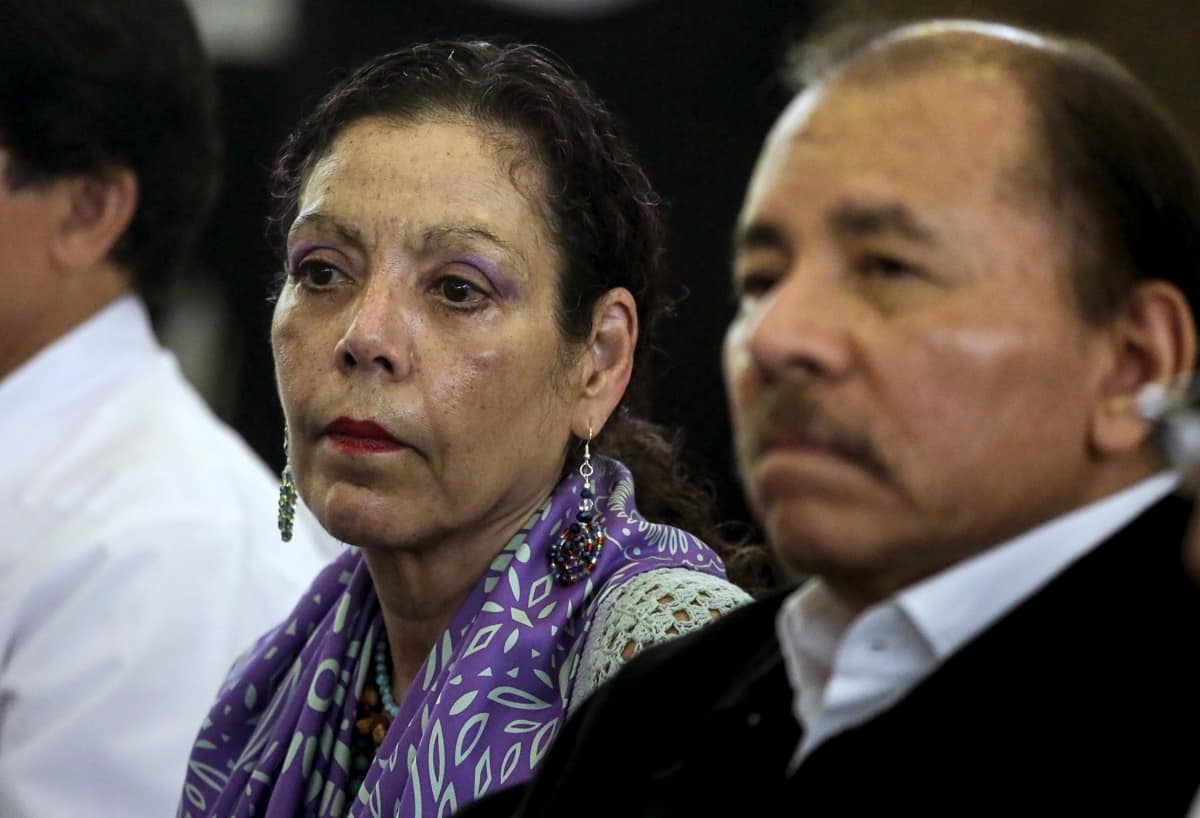An Argentine judge has ordered the international capture of the president of Nicaragua, Daniel Ortega, and his wife Rosario Murillo for the “systematic violation of human rights”, reported the lawyer who filed the complaint on Monday. “Federal judge Ariel Lijo resolved the summons to give an investigative statement and the detention order with a request for international capture of Daniel Ortega and Rosario Murillo,” lawyer Darío Richarte said, detailing that the case is based on the principle of universal jurisdiction that allows countries to prosecute crimes against humanity regardless of where they were committed.
The government of Ortega and his wife “is perhaps the bloodiest dictatorship that has existed on the continent,” Richarte added. The crimes they are accused of include “murder, serious deprivation of liberty, forced disappearance of people, torture, deportation or forced transfer of population and persecution of a group or community”.
“Each of those responsible for the state, police, military and paramilitary structure also have an arrest warrant for crimes against humanity,” he added. The complaint details the social and political context that Nicaragua has been going through since April 2018, identifies stages that make up what is described as a “criminal plan of repression” and has the testimony of victims under reserve of identity.
The action was filed before the Federal Courts of the Argentine capital on August 26, 2022, by a group of professors from the University of Buenos Aires led by Richarte and with the support of law school students. Since then, it has been expanded seven times to add the alleged complicity of actors such as the National Police and the Judiciary, the attack on freedom of expression with the closure of opposition media and NGOs, and the “intentional and organized migration”, among other accusations.
The legal action “was expanded as the dictatorship committed new human rights violations,” Richarte commented.
Universal jurisdiction
The totally pro-government Congress of Nicaragua approved on November 22 a constitutional reform that grants Ortega and Murillo absolute control of the branches of government. The reform extended the presidential term from five to six years and confirmed the power that Murillo already had, who then went from being vice president to “co-president”.
The text also grants total power to the Executive since it establishes that the co-presidents will coordinate “the legislative, judicial, electoral, control and oversight, regional and municipal bodies”, which the Constitution previously recognized as independent. Between February 2023 and September 2024, the Nicaraguan Justice deprived more than 400 opponents of the Ortega government of their nationality, many of them political prisoners later deported and others previously exiled.
Among them are the writer Gioconda Belli or the writer and Cervantes Prize winner Sergio Ramírez, who was vice president of the Sandinista government (1985-1990) and is now a critic. Ortega, a 79-year-old former guerrilla who ruled Nicaragua in the 1980s after the triumph of the Sandinista revolution, returned to power in 2007. Since then, his critics point out, he has established a “dictatorship” and “nepotism” together with his wife, six years his junior.
The Argentine justice recently applied the principle of universal jurisdiction when it issued an arrest warrant in September against the Venezuelan president, Nicolás Maduro, and his second in command, Diosdado Cabello, for crimes against humanity. It also invoked it in 2010, when it opened a case for crimes against humanity committed in Spain during the mandate of Francisco Franco, and in 2021, when it opened an investigation into accusations by Burmese military against the Muslim minority.
Another famous precedent for the application of this principle occurred when, in 1998, the former Chilean dictator Augusto Pinochet was arrested in London following an order from the Spanish judge Baltasar Garzón.






